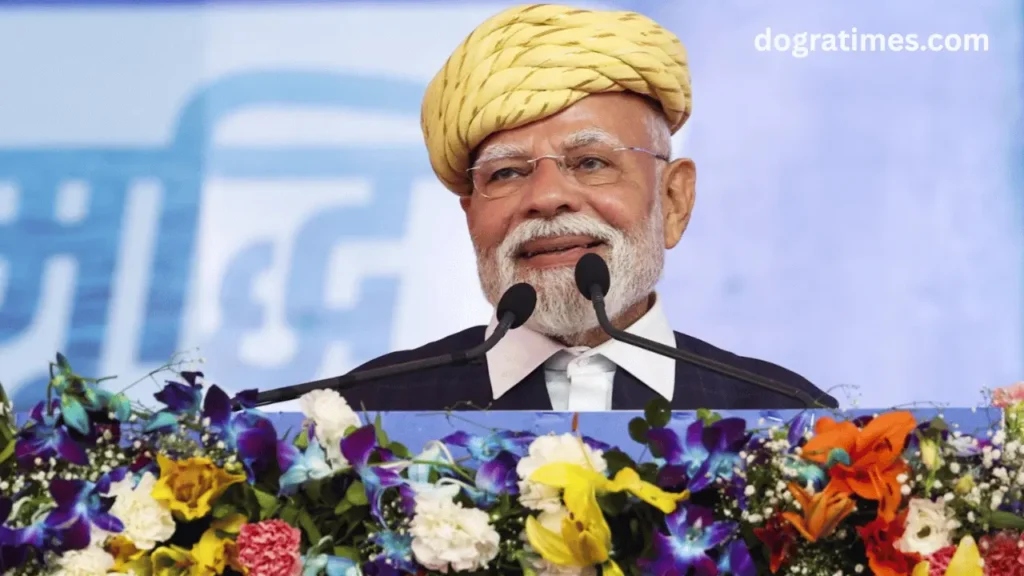Prime Minister Narendra Modi, addressing the ‘Samudra se Samruddhi’ event, underscored India’s critical need for self-reliance, identifying the country’s primary challenge as its dependence on foreign nations. Launching and inaugurating projects worth Rs 34,200 crore, Modi emphasized that true progress and national dignity hinge on reducing this dependence and fostering indigenous production across sectors—from semiconductor chips to shipbuilding.
Modi highlighted that while India embraces global cooperation and harbors no major adversaries internationally, reliance on other countries undermines national strength and self-respect. He stressed that the future of India’s 140 crore citizens cannot be entrusted to external forces, and that self-reliance, or “aatmanirbharta,” is the singular solution to the nation’s multifaceted challenges.
Critiquing past policies, Modi pointed to the legacy of the “license Raj” under previous governments, which stifled young talent and isolated India from global markets. This, he argued, prevented the country from realizing its full potential even decades after independence. He also noted that early globalization efforts were marred by a focus on imports and corruption scandals, further hampering growth.
Using the shipping industry as a case study, Modi lamented the decline of India’s once-thriving shipbuilding sector. Fifty years ago, Indian-built ships accounted for over 40% of the country’s import-export trade, but today that figure has plummeted to just 5%. This decline has resulted in an annual outflow of approximately USD 75 billion (Rs 6 lakh crore) paid to foreign shipping companies, money that could have supported millions of domestic jobs and bolstered the economy if invested locally.
Modi called for a revival of domestic manufacturing, asserting, “Whether it is semiconductor chips or ships, we must make them in India.” He described ports as the backbone of India’s emergence as a global maritime power and announced reforms aimed at simplifying trade through initiatives like ‘One Nation, One Document’ and ‘One Nation, One Port,’ which will eliminate bureaucratic hurdles.
The Prime Minister also revealed that five maritime laws have been revamped to modernize the sector, and shipbuilding companies have been granted infrastructure status. This change will facilitate easier access to bank loans and lower interest rates, encouraging investment in shipyards.
Looking ahead, Modi outlined three major government schemes designed to transform India into a leading maritime nation. These initiatives will provide financial support, promote technological upgrades, and enhance design and quality standards in shipbuilding, with an investment exceeding Rs 70,000 crore planned over the coming years.
During the event, Modi inaugurated and laid the foundation stones for maritime projects worth over Rs 7,870 crore, alongside other central and state government projects totaling more than Rs 26,354 crore across various sectors in Gujarat. He also conducted an aerial survey of the Dholera Special Investment Region, a greenfield industrial hub near Ahmedabad, and reviewed progress on the National Maritime Heritage Complex at Lothal, which aims to celebrate India’s rich maritime history.
Earlier in the day, Modi participated in a roadshow in Bhavnagar, further engaging with the public and stakeholders. (PTI)



